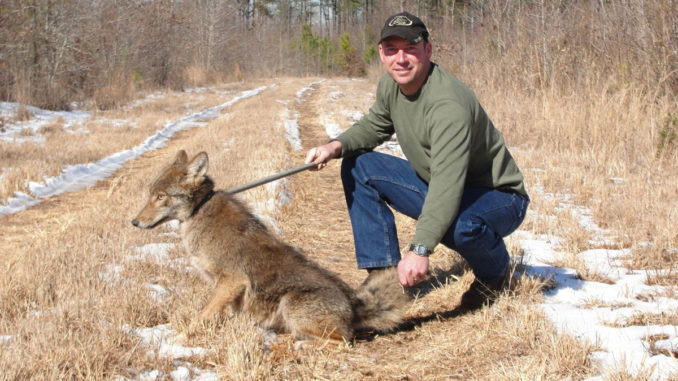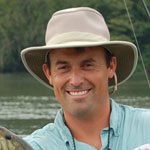
During the spring, nature experiences a rebirth that can be seen across the animal and plant kingdoms. Forests and pastures change to a bright, green with new growth, and many of the spring soft-mast plants produce their annual crop. In the animal world, the spring is during the middle of the rebirth, when many avian and terrestrial species are having their young. However, coyotes, are causing havoc to native game and non-game species across the Carolinas and virtually the entire eastern United States.
While deer and young turkey poults are out looking for food, so are the predators. Bobcats and foxes will take their fair share of young turkeys, rabbits and even a few fawns, but coyotes are the real threat, taking a lot more than the system can handle. Hunters looking to promote and protect their game species need to control these predators during this critical time.
Coyotes are a non-native species that have invaded the Carolinas over the past two decades. Historically, red wolves occupied portions of the eastern coast, but with the exception of the few populations introduced into eastern North Carolina, the red wolf’s historic range is occupied by coyotes, which are continuing to spread into urban, suburban and rural communities.
Coyotes will eat just about anything, including insects, fruit, grass, carrion, fish, frogs, snakes and small rodents. However, they are very efficient at catching many of the game species important to outdoorsmen, with rabbits, small deer, and wild turkeys on the menu.
During the spring, coyotes will birth from two to 12 pups and will bring them meat to eat. Turkey poults are running around, learning how to eat and small deer fawns are being born every day. Coyotes prey on these species heavily and are affecting them negatively.
Coyote populations across North American are at an all-time high and without any higher-level predators, native game species are vulnerable and subject to these pesky invaders. Coyotes can be hunted with dogs, trapped, or called-in using predator calls. Hunters interested in their game populations need to take action and dial into the new sport of predator hunting, and the time is right now!




Be the first to comment